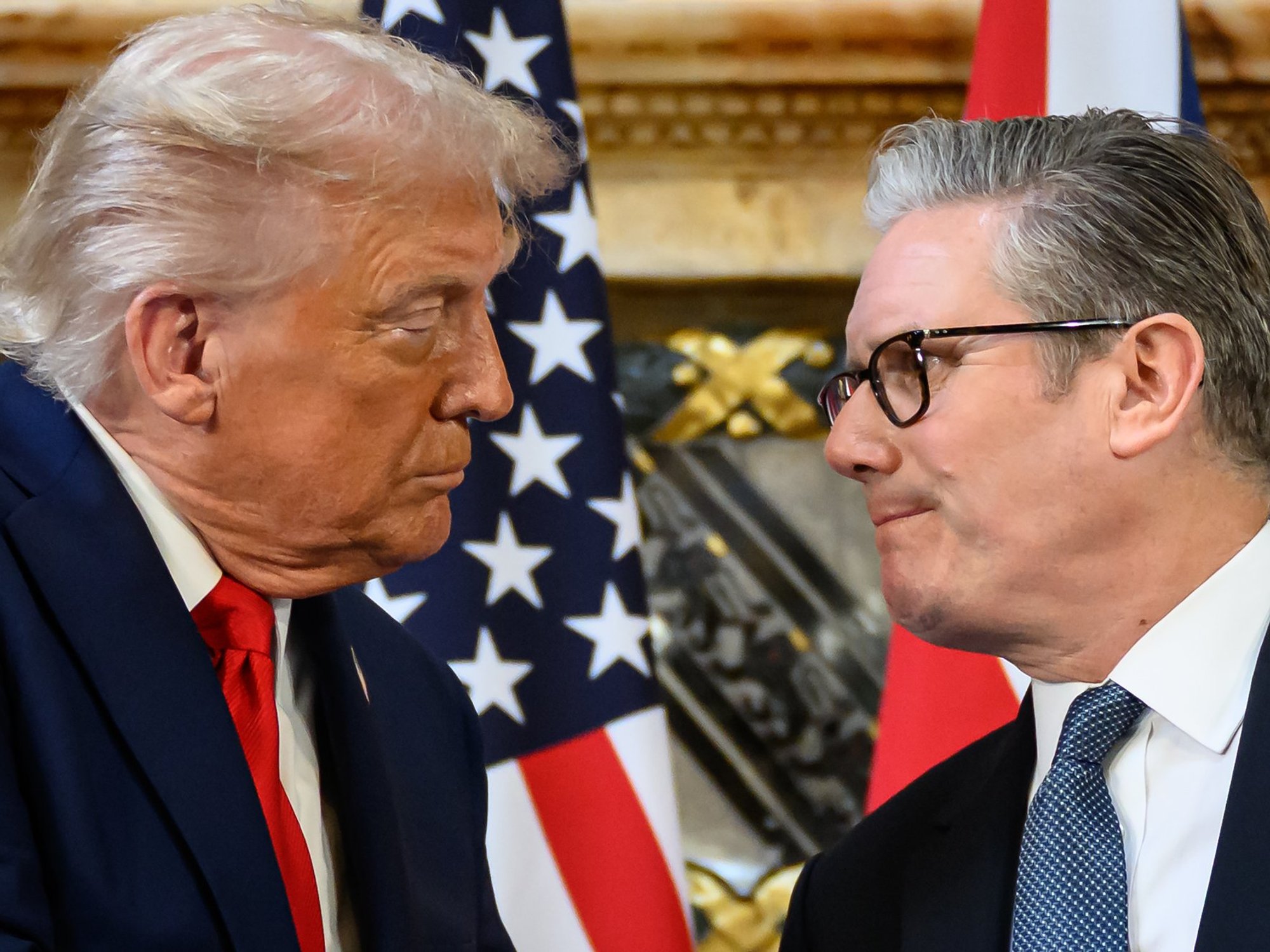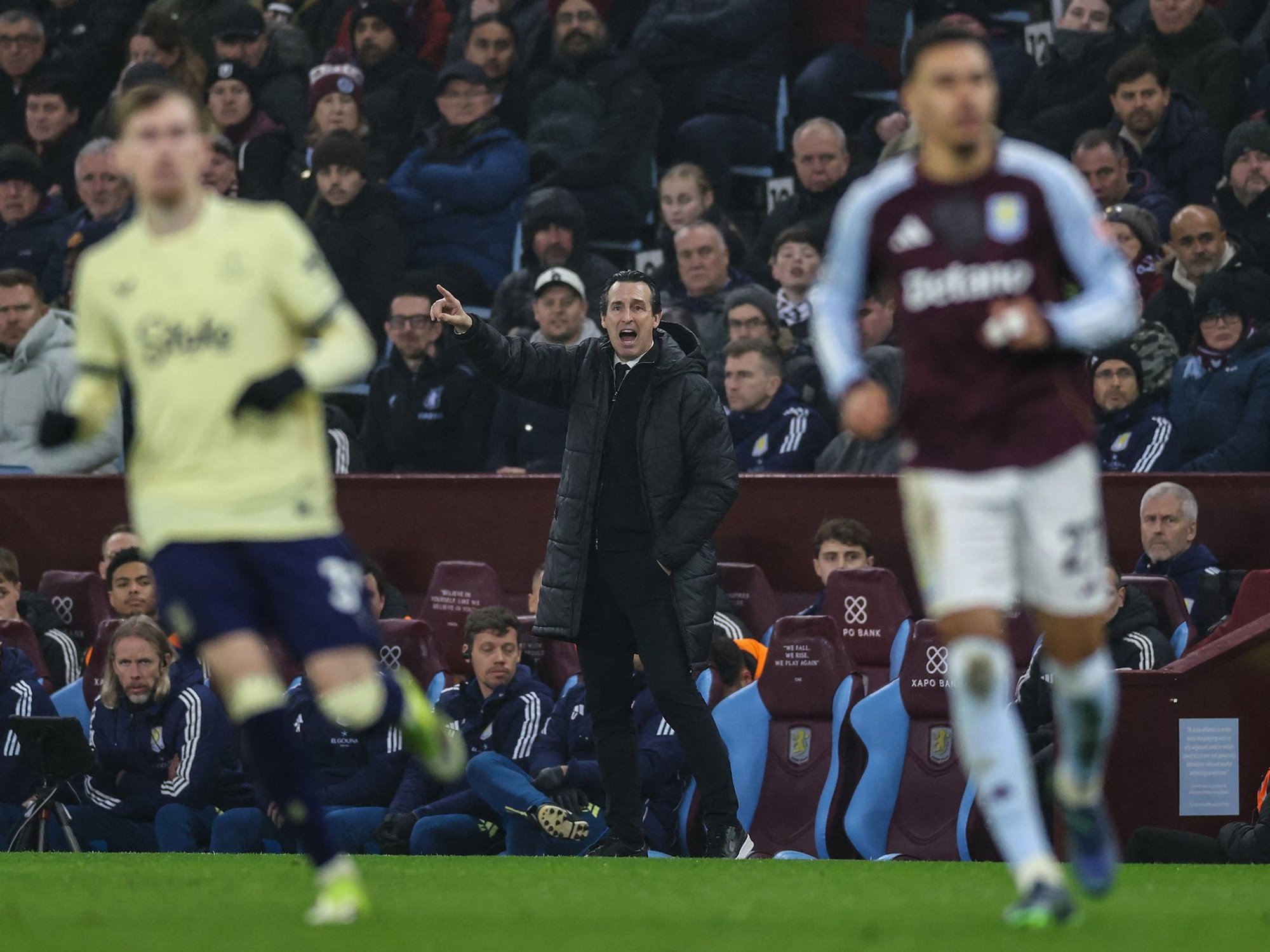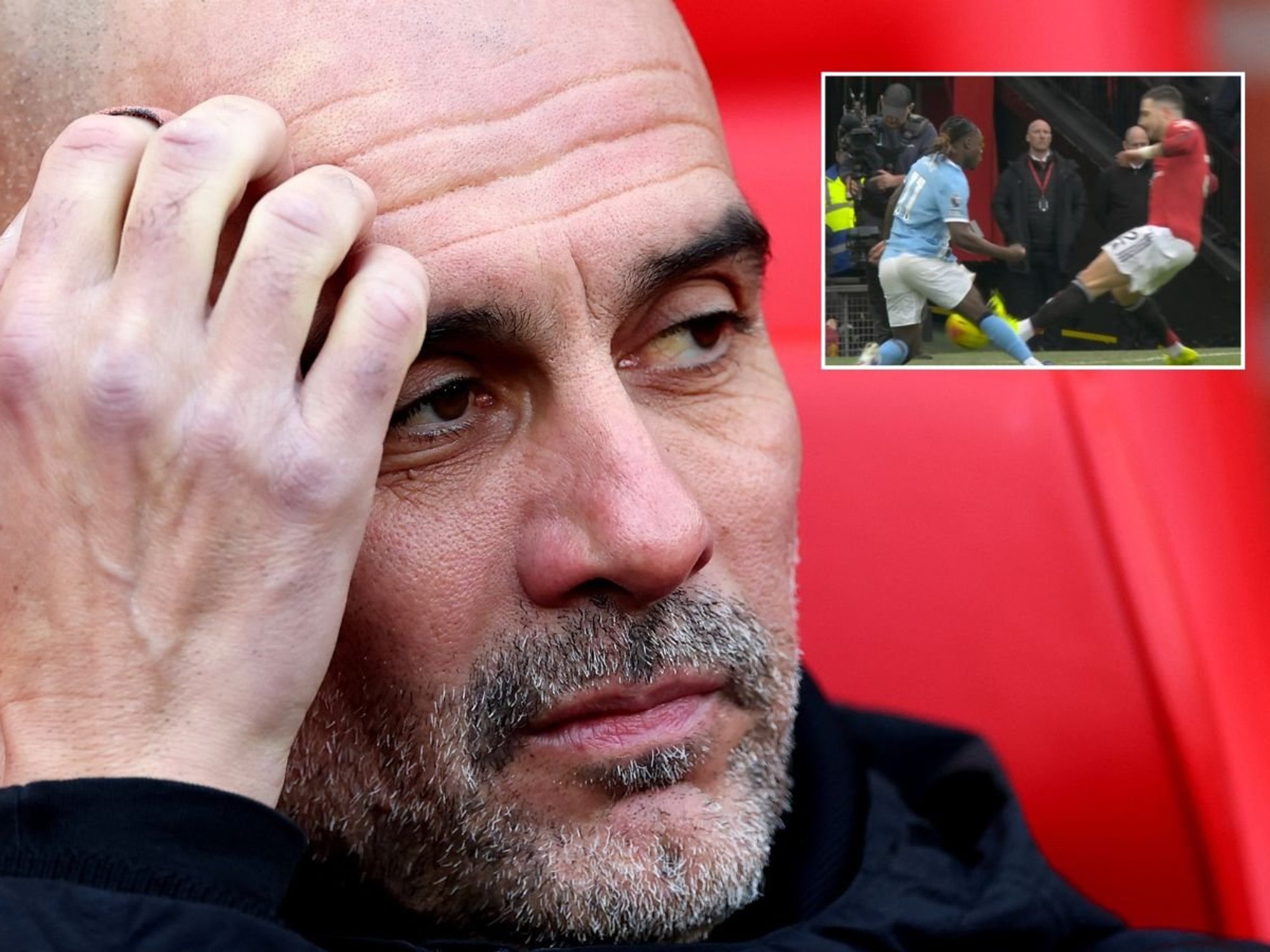Brexit did NOT destroy the Tories: Sunak's incompetence is the biggest threat to UK sovereignty - ANALYSIS
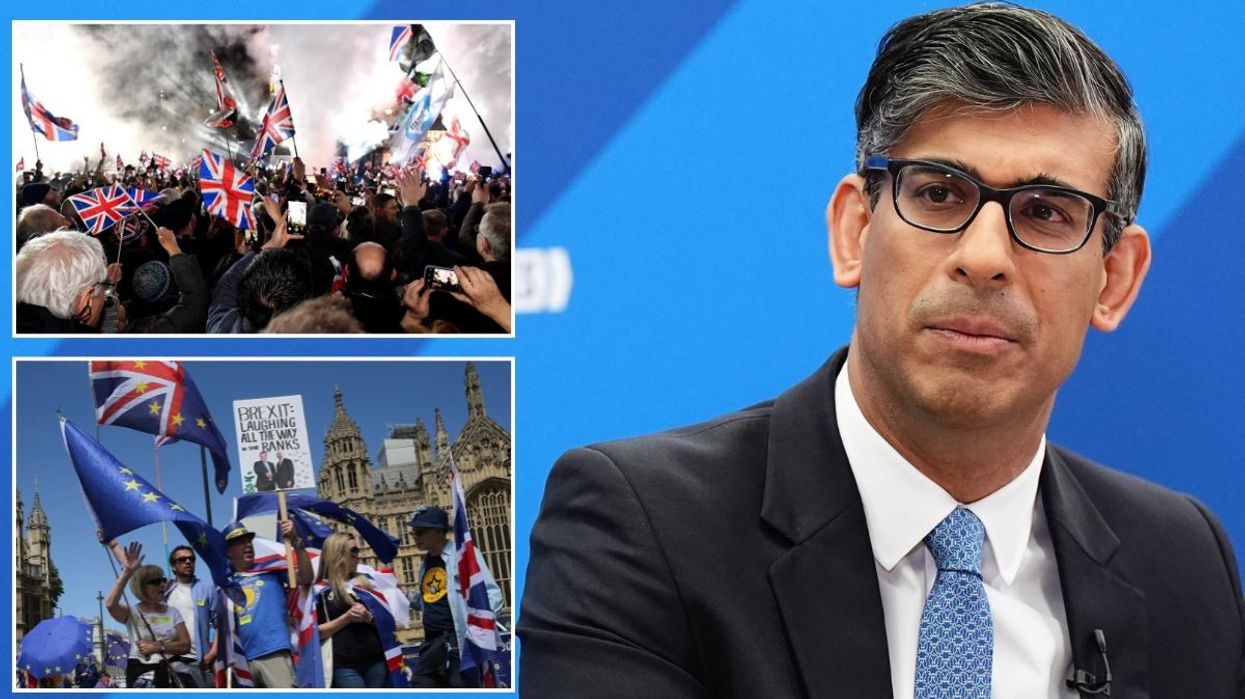
Brexit did NOT destroy the Tories: Sunak's incompetence is the biggest threat to UK sovereignty
|PA/GETTY

GB News' reporter Jack Walters argues Tory failures could put Brexit at risk
Don't Miss
Most Read
Latest
As we approach the eighth anniversary of the UK's referendum on EU membership, gleeful Remainers gloat about Brexit destroying the Tory Party.
Receiving around 20 per cent support in the opinion polls, the Conservatives have witnessed an almighty fall since Boris Johnson's 2019 triumph.
However, the division and exhaustion facing the historically most successful party in the West, is far more complicated than many Brussels backers would have you believe.
The Brexit referendum, spearheaded by leading Tories such as Boris Johnson and Michael Gove, handed the Conservative Party a golden opportunity.
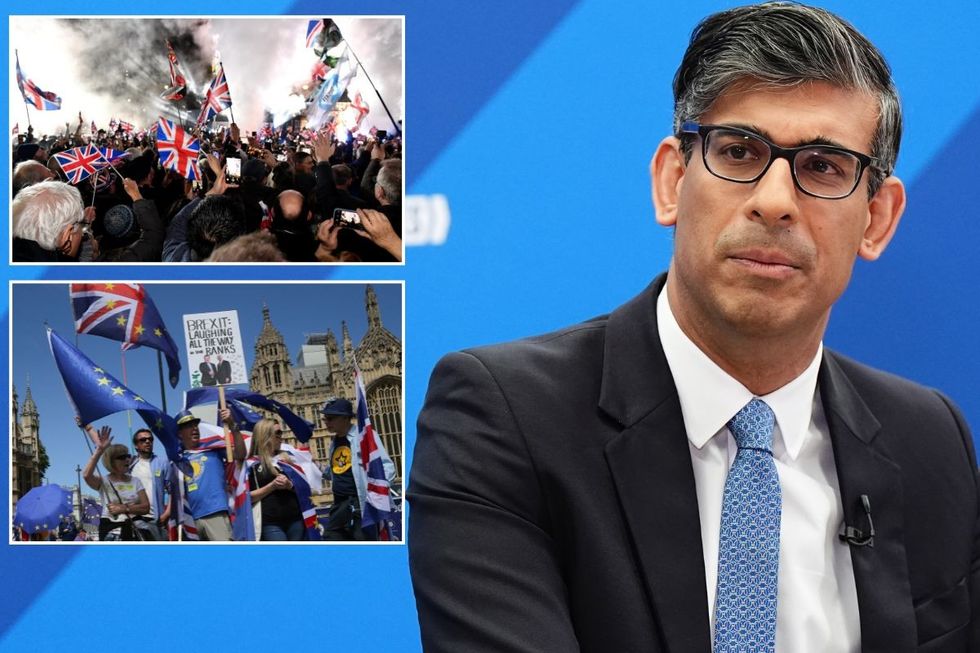 Brexit did NOT destroy the Tories: Sunak's incompetence is the biggest threat to UK sovereignty | PA/GETTY
Brexit did NOT destroy the Tories: Sunak's incompetence is the biggest threat to UK sovereignty | PA/GETTYFollowing the 2008 financial crash and years of austerity, the UK's decision to cut ties with the continental club facilitated a realignment that for many seemed unfathomable just a few years before.
From Ashfield to Ashford, Basingstoke to Bassetlaw and Copeland to Colchester, voters sided with Vote Leave's message of taking back control of Britain's money, laws and borders.
It presented an opportunity for a unfeigned and charismatic Tory leader, perhaps unconventional following decades of centrist-enforced focus groups politics, to connect with voters from broad backgrounds covering constituencies once wildly out of reach.
Boris Johnson seized on the initiative as the proverbial rugby ball emerged out of the back of the scrum to revive Tory fortunes.
As much as it might appear convenient to forget, failing to deliver Brexit posed an existential threat to the Conservative Party.
Having bungled David Cameron's majority, Theresa May proceeded to lead the Tories to a disastrous set of defeats at the polls as voters turned on the former Prime Minister after coming home empty handed from EU negotiations.
Losing 1,330 councillors in 2019, the emergence of the Brexit Party ensured the Conservatives collapsed to fifth place as Nigel Farage topped yet another Brussels poll.
General election opinion polls also sparked concern for the future of the Tories, with Conservative support sitting at just 20 per cent in a ComRes survey conducted just before May called time on her Downing Street days.
The Brexit Party almost immediately took advantage, receiving a plurality of votes in several surveys as the Tory Party held its leadership contest and pushing Labour close in Peterborough's by-election.
However, with the ability to connect socially conservative voters with varying economic views, Johnson appeared to pull off an unbelievable Conservative comeback in December 2019.
Brexit-induced parliamentary paralysis appeared to have been replaced by a Eurosceptic tidal wave.
That tidal wave, as shown by Johnson's 2019 manifesto, gave the Tories a unique opportunity to forge a new identity and more importantly a new vision for the country.
LATEST DEVELOPMENTS:
Prime Minister Boris Johnson walks away after driving a Union flag-themed JCB, with the words "Get Brexit Done" inside the digger bucket,
|PA
But what about now?
Fundamentally, Johnson's victory and the wider post-Brexit realignment of British politics ensured whichever party retained the most support from its respective tribe would likely win the next election.
The Tories, having wrapped themselves up in Brexit banners, faced a much easier task in doing so.
Despite a majority of Conservative MPs at the time of the referendum favouring continued membership, estimates suggest some 70 per cent of 2015 Tory seats voted to leave.
The task facing Labour was much more difficult, with Jeremy Corbyn and now Sir Keir Starmer walking a tight-rope to keep together metropolitan Remain-voting seats and Red Wall Brexit-backing constituencies.
Johnson continued to take advantage of the post-Brexit realignment in 2021, knocking another brick out of the Red Wall by winning Hartlepool for the first time since 1959 and gaining 235 councillors.
It is pretty unusual for any governing party to make gains once entering office.
Even Tony Blair, the stalwart of Europhile centrism, struggled either side of his three victories.
There was some evidence of an early Remain revolt against Johnson's Tories, with the Liberal Democrats picking up Chesham & Amersham in June 2021.
However, even during the partygate period, when the Tories feared decimation after defeats in North Shropshire, Wakefield and Tiverton & Honiton, Johnson was faring better than Rishi Sunak.
Johnson's lowest ebb, which in net approval placed him broadly in line with Sunak, came at a time when the Tories trailed Labour by 11-points.
The outgoing Prime Minister, who remains at the heart of speculation about a Churchillian-style comeback, even witnessed a slight revival ahead of his departure.
The difference between Johnson and Sunak, beyond charisma or prefect credentials, centred around retaining the 2016 coalition.
Johnson, who won over three-quarters of 2016 Brexit-backers in 2019, clung onto more than half of leave supporters at the time he announced his intention to resign.
Sunak is now struggling to etch above 33 per cent, with some polls suggesting Reform UK is attracting more Brexit supporters than the Tories, and Johnson remains more popular than his successor-bar-one with both Eurosceptics and 2019 Tories.
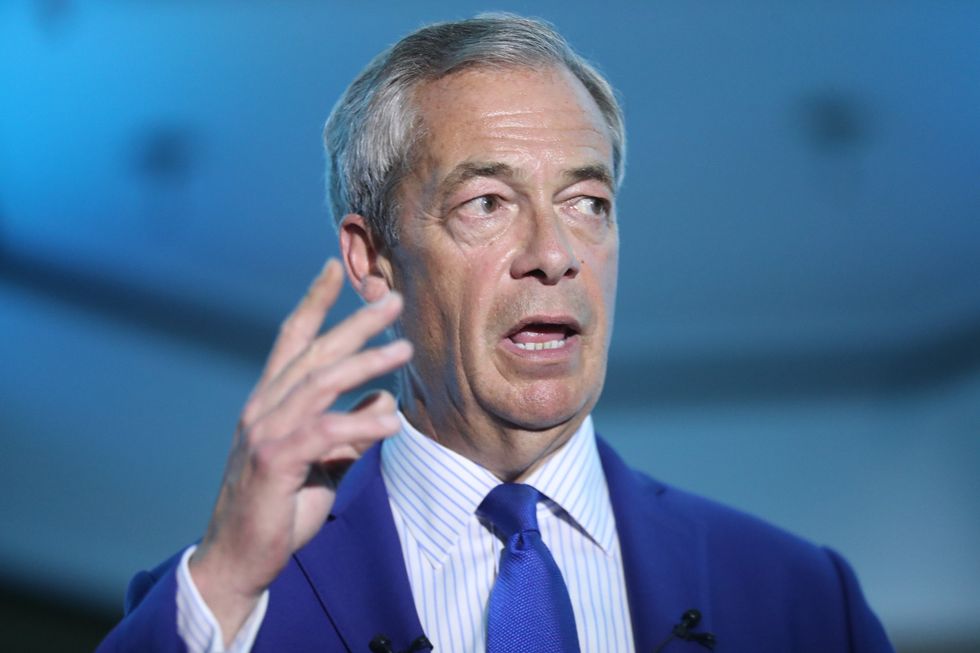
Reform UK leader Nigel Farage speaking at an event at the Imperial Hotel in Blackpool
|PA
And to those worrying about the risk of losing voters to the left, Reform is attracting more support from the Tories than those switching to Labour, the Liberal Democrats and Green Party combined.
But Johnson's downfall felt almost inevitable by the end.
The Cabinet cabal, spearheaded by Sunak, came following partygate and the Chris Pincher scandal.
So, why has support for the Conservative Party and admittedly leaving the EU collapsed even further?
Leave voters claim the most important issue facing the country is immigration, YouGov's latest survey has revealed.
Much like the 2016 referendum, Brexiteers have yet again become animated by people settling on British shores.
Net migration stood at 764,000 in 2022 before witnessing the most modest of slumps to hit 685,000 last year.
The figure is far higher than where it was before the coronavirus pandemic battered Britain, with the ONS recording net migration at 184,000 in 2019.
The failure on legal migration might not appear as optically damaging to the Tories as illegal migration but it remains salient.
Sunak has been slow to mobilise on the issue and is therefore facing a wrath of fury from traditional Tory voters.
The Prime Minister has since announced plans to reduce overseas students bringing dependents, increased the general salary threshold and even replaced the Shortage Occupation List with a new Immigration Salary List.
However, much of the focus remains fixated on the Channel crossing crisis.
There has yet again been a drastic increase since 2019 when just 1,843 made the perilous 21-mile journey in 12 months.
The number of migrants detected hit a record-breaking 45,774 in 2022, with another 29,437 crossing in 2023.
Despite being battered by the Supreme Court, Sunak is promising for flights to jet off to Rwanda if he returns to Downing Street after July 4.
The Prime Minister's problem comes from one man; Nigel Farage.
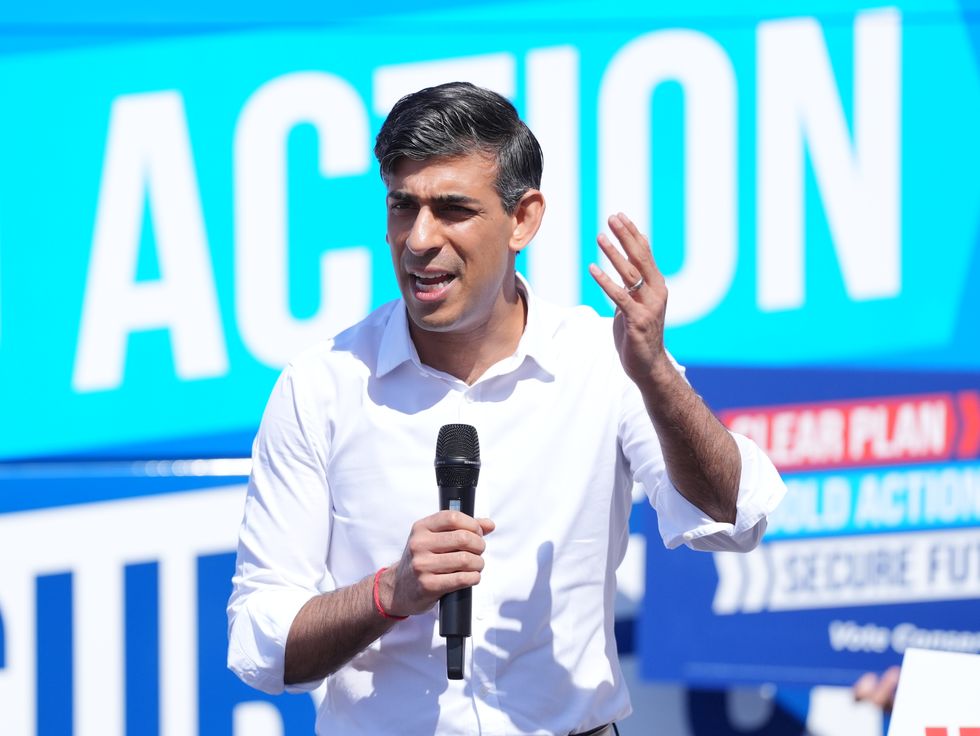
Rishi Sunak
| PAIt's pretty hard to out Farage, Farage himself.
Johnson perhaps delivered the best at it in 2019 but you certainly still need to dance to the Brexit stalwart's tune.
Farage, who is hoping to enter the House of Commons in his eighth shot at a Westminster election, has labelled polling day an "Immigration Election".
Reform UK, which poses an existential threat to the Tories and could return a handful of MPs, has put out a series of hardline policies to address immigration.
The populist party is promising to freeze non-essential immigration, pledging to leave the ECHR, deport foreign criminals and introduce an Employer Immigration Tax.
However, it is on the Strasbourg court where Sunak is most being found out.
The Prime Minister has been unable to definitively position himself on either side when asked whether he would withdraw Britain from the ECHR, instead saying: "If I'm put in a position where I'm forced to choose between those things, I'm going to put our country's national secruity first every single time."
Sunak's stance frankly frustrates everyone, with those keen to stay aligned with the court worrying about a withdrawal and those ardently in favour of leaving not trusting the Prime Minister to do so.
The cost-of-living crisis and NHS also feature as issues high in the minds of Brexit voters but struggle to rival immigration.
However, what ties all of these issues together is that rather than taking back control the Tories have blown it all away.
And CCHQ is more than aware of the need to win back Brexit voters, claiming a vote for Reform UK will give Labour the opportunity to drag the UK kicking and screaming back into the EU.
A Tory spokesperson said: “Nigel Farage risks handing Keir Starmer a blank cheque to rejoin the EU, impose the Retirement Tax on pensioners and hike taxes on hardworking Brits up and down the UK."
Johnson also appeared to peddle the line, writing: "He [Starmer] will immediately begin the process of robbing this country of its new-found independence, and make the UK the punk of the EU."
It should be noted that Starmer is keen to stress that Labour will not let the UK rejoin the single market or customs union.
Other parties do have much more pro-EU policies, including the Liberal Democrats plan to pursue single market alignment and the SNP's pledge to rejoin the bloc as an independent nation.
However, poll after poll suggests Tory failures have already jeopardised Brexit.
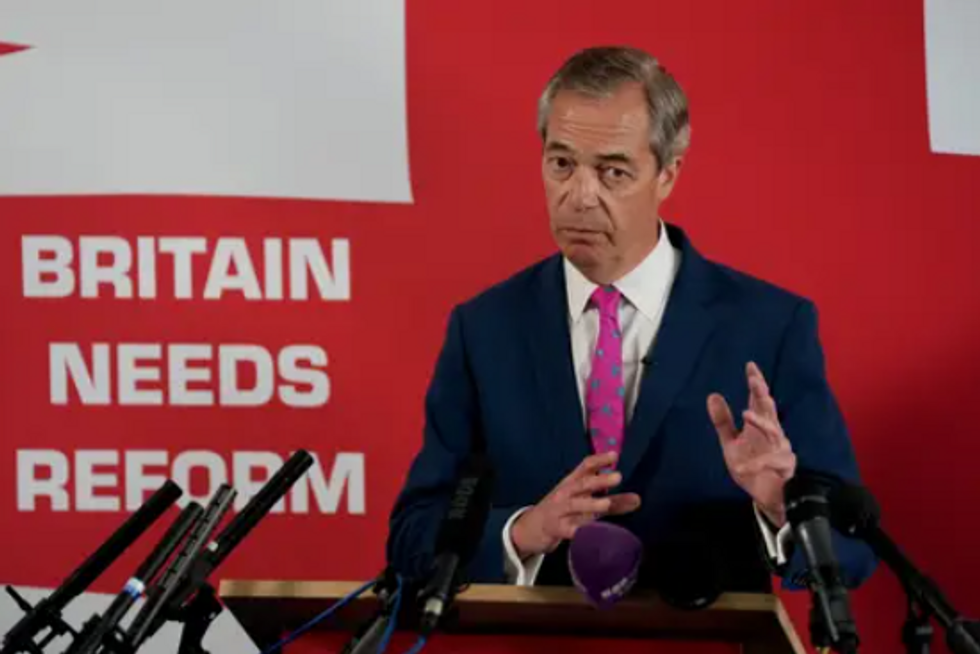 Nigel Farage was speaking at a Reform UK conference | PA
Nigel Farage was speaking at a Reform UK conference | PA Support for staying out peaked with a nine-point lead when the UK jumped out of the blocks to roll out the COVID-19 vaccine.
The figure has slumped thereafter and now falls around 15 per cent behind rejoining the Brussels bloc.
Despite the shift, the EU would likely force the UK to sign up to central pillars of membership, including joining the single currency.
Polls which include a Eurozone caveat continue to suggest Britons would prefer staying out of the continental club.
Farage has leapt on concerns about Conservative failure since the UK left the EU.
The Reform UK leader told GB News: “There is going to be a stonking Labour majority anyway.
“And I tell you something, if I was leading a party that was surging in the polls, had millions of votes and representation in Parliament, then that might make Mr Starmer think twice.
“After all, Brexit wrecked the Labour Party. And I was telling all you guys 10 years ago, we got more Labour votes than Tory votes.
“So, no, the way of stopping Starmer going further back into the EU is a strong Reform voice in the House of Commons.”
When asked if he would front up a campaign to keep Britain out, Farage added: “I’ve been campaigning all my life.”
Put simply, many 2019 Tory voters do not have faith in the Tories to deliver Brexit.
And it's not just about rhetoric; it's about delivery.
Beyond free ports and some of the so-called Edinburgh Reforms, easy wins to tackle the cost-of-living, such as cutting VAT on energy, have not been pursued.
And the rise of Reform UK has been astronomical.
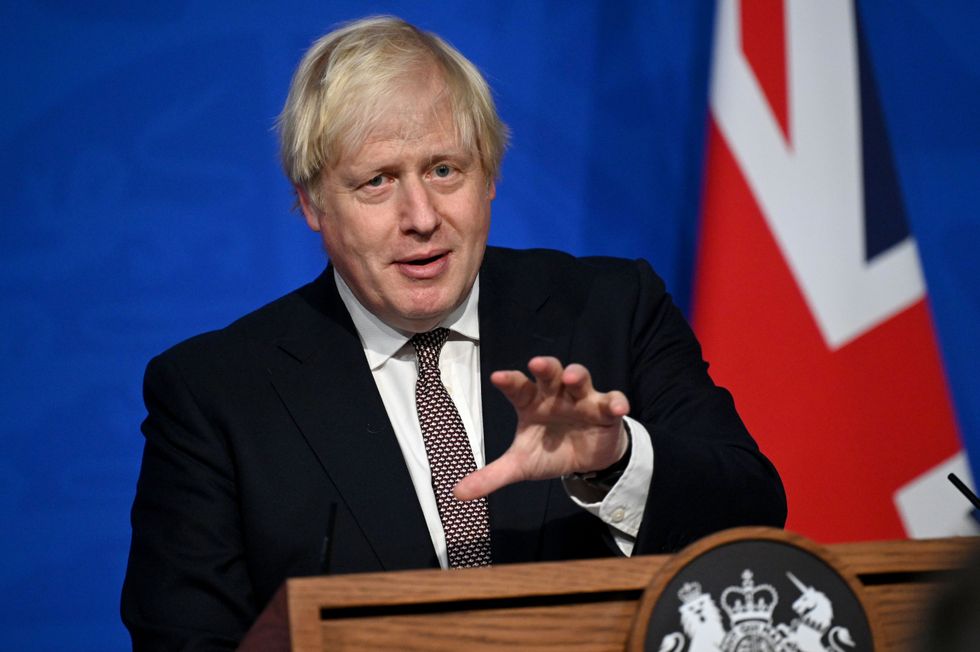 Boris Johnson | PA
Boris Johnson | PASince rebranding from the Brexit Party, support has skyrocketed from just two per cent to almost 20 per cent.
A series of by-elections earlier this year were somewhat underwhelming for the populist party but could soon be forgotten if Reform UK pick up seats on July 4.
And David Cameron's suggestion that Farage is intent on destroying the Tory Party is farcical.
It is Tory failure that ensured yesterday's Redfield & Wilton poll found more voters would prefer Farage to become Leader of the Opposition than any Tory rival.
Farage has consistently argued he will not destroy the Tories, they will simply destroy themselves.
When the rump of remaining Tory MPs wake up on July 5, they will need to think long and hard about what direction to take the party in.
However, reverting to pre-Brexit politics will only serve to a small sect of establishment centre-right thinkers gathered around a dinner table sipping French wine.
Perhaps Johnson himself is the only man who can emerge like Cincinnatus to save the Tory Party or maybe another MP will lead the charge for modern conservatism.
There's definitely appetite for the former Prime Minister to get his campaigning boots on.
Despite taking a step away from official campaigning, Johnson continues to voice support for select MPs and slam Starmer.
An ex-No10 insider told GB News: "He will make very calculated and well-timed interventions during the campaign."
Another Johnson ally said: “I would be surprised if there are many Conservative MPs who can look in the mirror this morning and say ‘we are in a much better place than we were when Boris was Prime Minister’.”
Tory insiders have been keen but so far unsuccessful at tempting Johnson back.
A Conservative source said: “Boris is a natural campaigner and it would give the campaign a great boost.”
Another leading Tory said: “Campaigning is what Boris is best at. Let’s wheel him out.”
And it would appear Johnson does reflect the Brexit realignment.
A Conservative candidate, who is seeking re-election as an MP, told GB News: "Boris in the Red Wall would be wonderful but in the Blue Wall not so much."
Who knows what the Tory Party has in instore for us for the future? But continuing down the same path will just put Brexit at an even greater risk.





